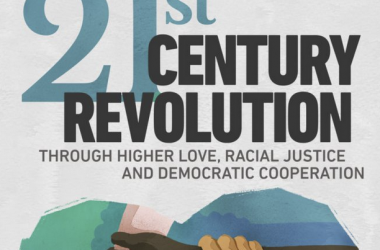By Ted Glick
February 14th, 2021
The Senate impeachment trial didn’t get the 2/3rds needed for a conviction, unsurprisingly, but it has clearly hurt Donald Trump and his white supremacist followers. Trump and those who physically attacked the US Capitol have been exposed for the violent extremists that they are. Their supposed pro-police politics were forgotten as they fought with and hurt Capitol and DC Metro police standing in the way of Trump’s attempted coup. And the fact that seven Republican Senators voted to convict Mafioso Don makes clear that the internal battle within the Republican Party will deepen between the overtly anti-democracy white supremacists and those who are more traditional, right-wing conservatives.
There are some on the Left, the ultra-leftists, who lump together not just all Republicans but also centrist Democrats, see them all as enemies of the people. Indeed, when Trump was up for re-election last year, these ultra-leftists took the position that there was no difference between the Republicans and all Democrats, and anyone on the Left who gave critical support to Joe Biden was a traitor to the cause of progressivism.
This self-marginalization through ultra-leftism is definitely not the way to keep the neo-fascists and white supremacists down, much less build up the progressive Left’s political power and effectiveness.
But there’s another error that people on the Left can make that will ultimately have similar negative results. It is being uncritical of, unwilling to be independent from, Democratic Party politicians whose willingness to fight for the needs of working people and the least of these, the large majority of the population, is compromised by their hunt for big-money campaign contributions and desire to be in the good graces of the rich and powerful.
There is no way that this country can decisively move forward in a progressive direction and decrease support for Trumpist politics and policies, politically defeat the neo-fascists and white supremacists, unless these two fundamentally problematic approaches to doing politics are rejected.
Affirmatively, what the progressive Left must be about is actually very simple: a justice-oriented government of the people, by the people and for the people, and not of, by and for the corporate elite.
Very simple, yet very complex, given the domination of our political and economic systems by the obscenely rich corporate class and the results of that domination.
One result is politicians who overtly align with that class and strive for their approval and support; in many ways these are the easiest to oppose. But another result is politicians who wish things were different and who are willing to do some things to ameliorate people’s pain and suffering but who fear being truthful and acting on that truth because of lust for more personal wealth and power, concern about career advancement and/or just plain human weakness.
A progressive Left which gets it on the dangers of both ultra-leftism to the left and selloutism to the right will go about its work, determine its strategies and tactics, openly and clearly proclaiming that the ultimate goal is an end to corporate domination of our society and all that goes with it, like white supremacy, patriarchy and heterosexism. It will strive toward that objective consistently, but it will be willing to achieve victories along the way through, in part, tactical compromises with non- or sometimes-progressives.
What are examples? One is Obamacare, when what is needed is Improved Medicare for All or stronger universal, national health care. Another is Biden’s weaker climate plan if, after political struggle, we are not able get right now a strong Green New Deal. A third is forceful federal action to restructure local police forces to stop racism, police killings and brutality, when what is needed is a complete overhaul of our criminal justice system.
When the progressive Left as a whole is consistent about its objectives, flexible in its tactics to get there, principled in the way that it navigates the complexities of forward-moving social change, and a visible model of an inspiring cultural alternative to the competitive and individualistic dominant culture, helping more and more people find the strength and support to fight for justice and to grow and develop as better, more loving human beings in the process—then and only then can we change the world.
Ted Glick is the author of the forthcoming Burglar for Peace: Lessons Learned in Catholic Left Resistance to the Vietnam War. Past writings and other information can be found at https://tedglick.com, and he can be followed on Twitter at https://twitter.com/jtglick.





